
The Mystery of Speaking in Tongues vs Babel Revealed
The first, and by far most important event that took place on the Feast of Pentecost in 33 A.D., was not only the arrival and physical appearance of the Holy Spirit, but the beginning of the Holy Spirit permanently indwelling the followers of Christ. This is why most Biblical scholars see this event as the official start of the Church Age. Up until this event, the Old Testament recorded times when the Holy Spirit would arrive to help a person complete a task that was in the will of God. But, once the task was completed, the Holy Spirit would leave. This is why King David pleaded with God not to take the Holy Spirit away from him (Psalm 51: 10-12).

It was on Pentecost that the Holy Spirt first indwelled the Apostles and gave them many of the same powers that Jesus possessed and used during His ministry. One of these powers is referred to as the “Gift of Tongues”(I Corinthians 12:4-11). However, this gift was specifically given at a certain time to certain followers of Christ to allow them to preach to unbelievers in their native tongue having never previously learned the language (Acts 2:1-4). It was this miraculous public event which occurred in the Temple’s surrounding plaza that attracted the attention of tens of thousands of Jews attending this annual feast. It immediately convinced many attendees both Jewish and gentile acolytes that the power of God was present in the Apostles. It also served as a way to allow unbelievers to hear the Gospel first hand from the Apostles themselves, and they would began to spread the good news around the area of Jerusalem. It was sort of a jump start for the new Christian Religion referred to at this time as The Way. So, the gift of tongues was primarily created to benefit Jews attending Temple by way of witnessing this miracle. It was also used to impress foreign unbelievers who would return to their countries throughout the Mediterranean region and serve as the first Christian missionaries. Other gifts bestowed upon the Apostles at this time were the abilities to announce revelations, prophecies and establish early church doctrine (I Corinthians 14:6).

Jesus had mentioned this event to His disciples during the Last Supper (John 14:16; 14:26; 15:26, 16:7). He told them He would send them “another comforter” after He had ascended to the Father and was no longer physically there with them. This Comforter would then give them courage, help them preach redemption through faith in Christ, provide them with the power to heal, assist them with the writing of the Gospels, and the initial organization of His Church (John 14:26). The Comforter today, known as the Holy Spirit, was a transition from Jesus being physically with His individual Judean followers, to Jesus being spiritually with all members of His worldwide Church until His return.
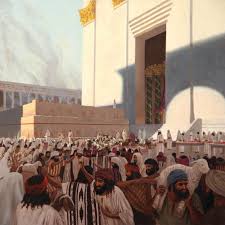
So what exactly was this Gift of Tongues that occurred at during the annual Jewish Feast of Pentecost? Scholars have two different theories on how exactly the Apostles communicated with the crowds that day in the Temple plaza. One theory is that each of the Apostles spoke in a certain known language. However, the Book of Acts lists at least sixteen nations of people attending Temple that day. Therefore, it would require an Apostle to speak in as many as sixteen different languages in order to be understood by everyone (Acts 2: 7-11). And, if this was the case, you would have had twelve Apostles speaking sixteen languages at different times to different people of different nations. Not a cohesive way to spread the Gospel. A second theory is, after Jesus ascended from the Mount of Olives, the Apostles returned immediately to an upper room in Jerusalem. There they were joined by Mary, the mother of Jesus, His brothers and other unnamed women. Other followers also arrived creating a group of 120 disciples (Acts 1: 7-15). It was then that Judas was replaced with Matthias. Then, ten days later, this same group of 120 was gathered together when the Holy Spirit arrived and indwelled all of them. Therefore, each of the 120 began to preach the Gospel, each in a different language. But now we would need to consider the complexity of 120 followers of Jesus all preaching the Gospel at the same time in more than sixteen different languages. Again, this would not have been the most advantageous way to spread the Gospel. In fact, it would have no doubt created complete mayhem in the plaza area.
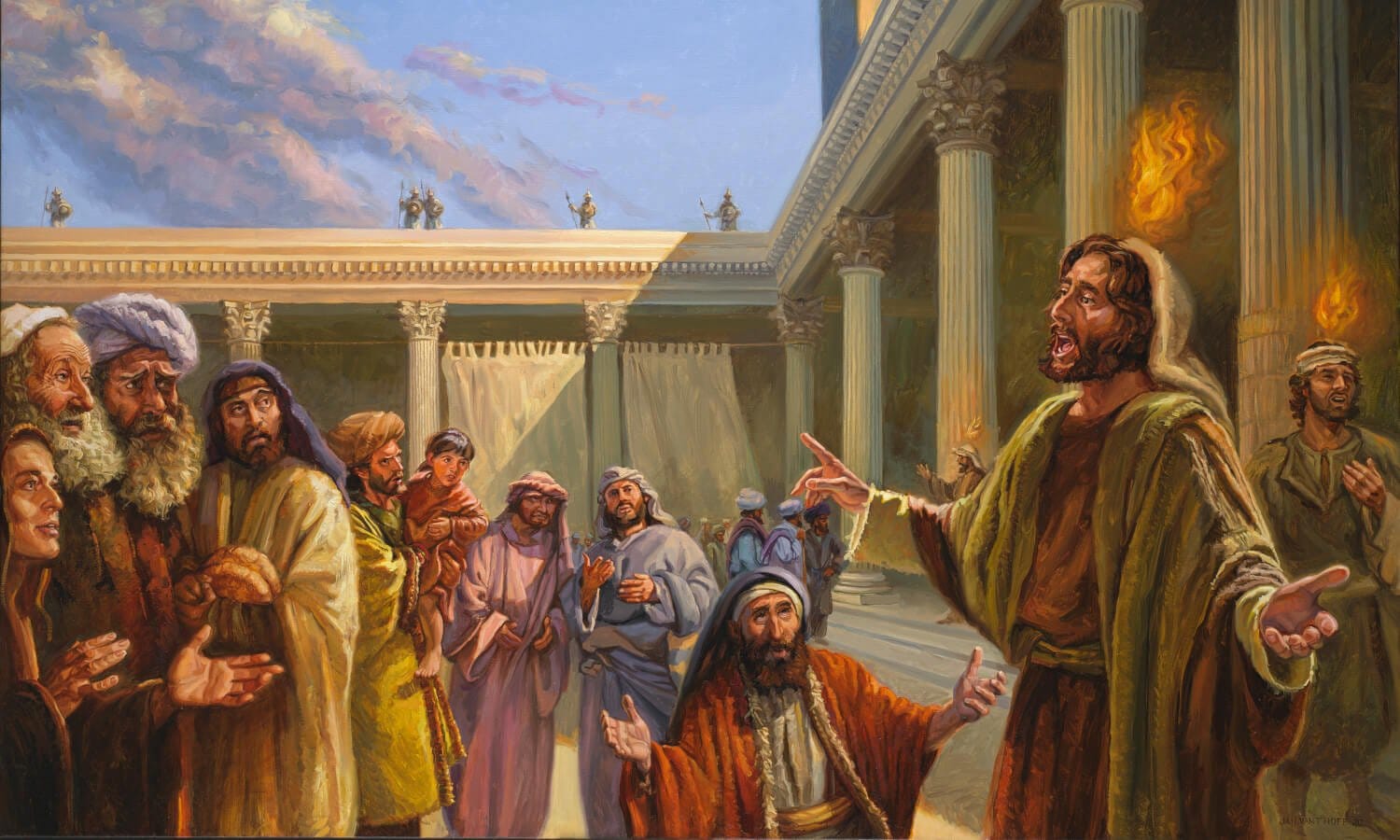
My study of this event, as cited in Scripture, has led me to understand that there is a third, more practical yet equally miraculous way the Apostles used this gift. The twelve Apostles simply began to preach the Gospel in their own language most probably Greek, Aramaic or Hebrew. However, the different people from various nations instead heard them speaking fluently in their own language. This would explain why this event was seen as such a tremendous miracle and completely mystified the crowds. The Apostles were preaching the way they always had using their native language. But this time their words were more elegant, more convincing and were understood by a foreign audience who may not be well versed in the common languages of Judah. For example, imagine a Jew in Jerusalem speaking to you in Hebrew. You hear the Hebrew coming from him, but your brain, for completely inexplicable reasons, comprehends exactly what he is saying even though you are not familiar with Hebrew. Scripture tells us that the people were immediately astounded and questioned how simple “Galileans” {the 12 Apostles} could have this ability to converse with them fluently in so many foreign languages (Acts 2: 6-8).
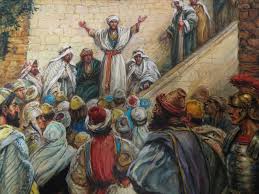
In addition, we are told that Peter began to speak to the crowd to help explain what was happening (Acts 2:14). Peter is now one man talking to the same crowd from various nations and his words are still being understood by all simultaneously in their various native tongues. So, it is clear that the Apostles were preaching in their common language, but somehow this one language was now being universally understood by all. This event was a shadow prophecy in that it was informing the early Church members that its Great Commission by Christ to spread the Gospel to all the nations of the Earth was now beginning. (Matthew 28:19; Mark 16:15; Acts 1:8). The temporary barrier of different languages would not hinder the spread of this universal offering of redemption and eternal life to all mankind.
So, we can say with certainty that this miraculous event was literal and prophetic, yet at the same time an historic lookback as it was intentionally referencing a similar ancient seminal miracle mentioned in the Book of Genesis.

After the flood, the world’s population began to grow. It was during this time that a great warrior leader and dictator arose called Nimrod (Genesis 10:8). He was the son of Ham and the grandson of Noah. He established an empire with its capital the city of Babylon (Genesis 10:10). He is the first man in recorded history to wear a crown. He ordered a great city and towers to be built of fired brick to honor him, his nation, and the gods they worshipped (Genesis 11:4). Noah had preached the religion of the One True Creator God. But Nimrod rejected his grandfather’s religious beliefs. Instead, he believed in a pantheon of gods. These gods represented both Earth bound creations such as water, rock formations, plant and animal life as well as the heavens with its stars and constellations. Because at this time all the people of the Earth spoke one language, it was easy for Nimrod to organize and control them (Genesis 11:1). Any who questioned his authority were hunted down and killed (Genesis 10:8-9; Josephus, Flavius. “Antiquites of the Jews, Book I”). He apparently had a vision of a One World Order with a One World Religion, Economy and Military. This new world order was different from the old one before the flood and Nimrod saw himself as its ruler, high priest and commander in chief. So Nimrod is the earliest example of an antichrist on record after the flood. Before the flood, the Nephilim or Giants were antichrists as they considered themselves divine rulers being the physical sons of heavenly gods {angels}.
While Nimrod continued to establish great cities throughout the Middle East, he was singularly focused on the idea that he received his tremendous military power from pagan worship practices. Therefore, he chose Babylon as not only his capital and the center of his planned One World government, but also the home of the nation’s worship center. It would be here that all the people of the Earth would marvel at the wonders he had created and worship him and a pantheon of Babylonian gods.

In the center of Babylon, Nimrod commissioned a great tower and pagan temple to be constructed. It would be supported by a giant ziggurat, an earlier precursor to the later Egyptian pyramid design. Its height continues to be debated, but it was most probably between three hundred and six hundred feet tall when the tower project was suddenly abandoned. Today this site has been located and excavated. It is thought that had the tower been completed, the top of the ziggurat would have supported a large platform on which the temple was to be located. It was here that Nimrod and his priesthood would have worshiped creation and the constellations. They believed that the stars controlled a person’s destiny and not a Creator God. This worship of the constellations was the early precursor to the Zodiac as well as astrology, both later developed by the pagan Babylonians.

This is also why the Bible and all Biblical scholars cite Babylon as the originator of all the world’s false religions, also known as the Mother of Harlots (Revelation 17:5). This blatant blasphemy on the part of Nimrod infuriated God (Genesis 11:5-6). It has always been against the will of God for man, who is a creation, to worship other creations instead of their Creator (Exodus 20:3-5; Deuteronomy 4:19; John 4:24; I John 5:21; Romans 1:25).
On an interesting note, Nebuchadnezzar II attempted to finish the tower in c. 605 B.C. as did Alexander the Great in c. 350 B.C. Both attempts failed.
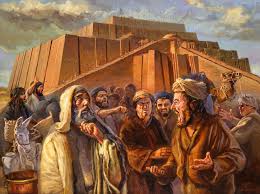
To stop this abomination, God commanded that the people of Babylon, composed of many tribes related by race, creed or color, to suddenly begin to speak in different languages (Genesis 11:7). While these languages were unknown at that time, many are still spoken today. This miraculous event occurred c.2,100 B.C. This forced the tribes to segregate and organize themselves. Then, because they saw this miracle as a curse from a mighty God upset with Babylon, the majority fled from the cursed city to create other great and unique civilizations throughout the Earth as was God’s original plan (Genesis 11:8; 1:28). While the tower project was now officially cancelled, the city began to rebuild its population and was thriving again by c.2,000 B.C. This would have been the time Abraham was born in the city of Ur one hundred and forty miles southeast of Babylon.
However, at Pentecost the exact opposite of what happened in Babylon occurred in Jerusalem. The language barrier created 2,000 years earlier in Babylon by God, was temporarily suspended in Jerusalem. This allowed the Great Commission and prophecy given by Jesus at His ascension to come to fruition. Jesus commanded that His followers were to spread the Good News {Gospel} of eternal life through faith in Him. So, while the language barrier created at Babylon stopped the creation of a one world pagan religion, Pentecost overcame that barrier in order to preach the salvation of mankind through the One True Religion of the One True Creator God. This miracle was also a shadow prophecy of the future Millennial Reign of Christ when all the people of the world will once again speak a common language to create stronger bonds between all the now holy races and nations.
Today, the Gospel has been translated in every know language on Earth. And, through the power of mass communication, satellites and missionaries, the Gospel has now reached the entire population of the planet just as Jesus commanded. But, at Pentecost, God caused the Apostles to speak in one language universally understood which in turn caused the foreigners to return to their nations and further spread this good news of eternal life through the Son of the Creator God of Israel.
So what will be the common language spoken by all the people of the Earth during the Reign of Christ? The Rabbis believe this language will be Hebrew. This will occur when Christ returns, and the entire Earth will once again worship the Triune Godhead in one language as it was in Eden. And, we read that people will not need to learn this new language. Instead, they will be capable of this feat due to the power of the Holy Spirit just as it was in the days of Nimrod and later in the time of the Apostles. So, what happened to the Apostles miracle gift of speaking in tongues?
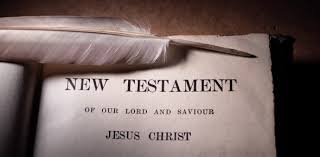
Paul tells us that until the return of Christ, prophecies, tongues and new knowledge will slowly fade. This is because today we have the completed and readily available New Testament. It contains all the authoritative history, advice and prophecies that followers will need until the Second Coming of Christ (I Corinthians 13:8-11). The ability to speak in tongues is no longer necessary as the Gospel is currently being preached in every country and in every language.
So, how did today's tongue language come into existence, and is it related to the Apostles who spoke in tongues on Pentecost?
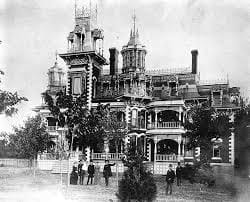
In 1900, Charles Parham, an instructor at a Bethel Bible College in Topeka, Kansas, was teaching that true baptism was followed by the endowment of a “gift”. He explained to his students that this gift could take the form of dreams, visions, prophecy, faith healing and speaking in tongues just as the Apostles did. He also said that while gifts were given to the Apostles, they were also still available today to “those of great faith”. He told his student to spend the coming Christmas break meditating about their own gift. On January 1, 1901, one of his students by the name of Agnes Oznam began speaking in an unknown language in class. This language would become known as Glossolalia which means to speak in angelic tongues (I Corinthians 12:10; 14:2-5). This event was quickly followed by more and more students suddenly speaking in tongues or unknown languages. Parham concluded that this was an end time prophecy event. Then, in 1903 Parham suddenly turned from teaching and instead began a faith healing ministry that quickly became very popular.
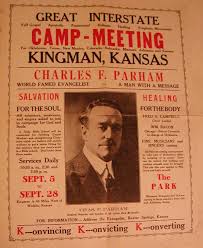
This idea of a gifting baptism that brought with it a special talent to those approved of by God, quickly spread in the rural areas of Kansas, Texas, Alabama and Florida. These states remembered and wanted to return to the days of revivals that were conducted by layman preachers who gave energetic Hell fire sermons on simple themes in tents located in fields. This was a rejection of modern passive services conducted by preachers trained in higher criticism. Traditional protestant churches began expelling those who returned from the revivals and disrupted services by speaking in tongues.
These people decided to band together to create their own churches loosely grouped under the name of Pentecostals. This name was selected because many parishioners would become ecstatic during services and start speaking in a tongue that could only occasionally be translated by other members. This was thought by these churches to have been what occurred in part or whole by the Apostles at the Pentecost of 33 A.D. The growing movement split in 1913 when a non-trinitarian doctrine emerged that people were to be baptized only in the name of Jesus. The 1970’s saw the formation of a new sect of the Pentecostal movement known as Charismatic, from the Greek word gifts. To date, over one hundred different sects of Pentecostalism now exist. In the U.S. there are five million members in the Church of God in Christ, three million in the Assemblies of God {seventy million worldwide}, and three million independent churches.

A few years after the Pentecost of 33 A.D., this type of unintelligible tongue speaking began to occur and the early Christian assemblies were both startled and annoyed. So, they wrote Paul to get his advice on this matter and to bring harmony back to the meetings. Paul understood that this was a practical matter. If a person began to speak in an unintelligible and unknown language that could not be understood or translated, why would Christ through the Holy Spirit allow this to happen? What good would come from such an outburst? So Paul wrote that in an assembly of believers, if any members felt they needed to speak out in unintelligible garble, or in an unknown language, they were to keep silent unless there was someone who could interpret the language they were speaking. And, even if there was an interpreter present, others who wanted to speak were required to take turns doing so. This process was to be orderly and done for the edification of the saints gathered together. Also, the translation should not deviate from accepted traditional Christian doctrine (I Corinthians 14: 27-28, 40).
So, this particular gift of tongues was, from the beginning, completely different from the gift that was given to the Apostles at Pentecost. They were speaking in known languages, or they were speaking in a single language that was universally understood by both the Apostle and those hearing him with no need for an interpreter.

This new type of tongue babble has been cited by scholars as being very similar in nature to the tongues said to have been spoken in ancient pagan worship particularly within the Greek religions. Worshippers would become ecstatic in their chanting rituals and became worked up into an emotional frenzy. It was then that some begin to speak garbled phrases. Some believed that these phrases were the language of called up spirits. Some believe these languages cannot be known, while others believe these utterances can be translated into a known language.
However, after the Apostles gift of tongues miracle in 33 A.D. there is no actual citing in the Bible that this miracle was ever reproduced. Further, that gift along with many others has apparently ended. Christians no longer receive the Apostles gift of tongues today because there is no need for it. Paul said this clearly when he wrote “whether there be prophecies, they shall fail {end}; whether there be tongues, they shall cease; whether there be {additional } knowledge, it shall vanish away {cease}. For we {currently} know in part, and we prophesy in part. But when ‘that which is perfect comes’, {the finished Gospel} then that which is part shall be done away with” (I Corinthians 12:1,10, 27-31). Paul is saying that yes, there was for a short time, prophecies, speaking in tongues and additional knowledge all given as part of God's unfolding revelation plan. But, many of these gifts would no longer continue once God’s plan was completed. Today, all truth “that which is perfect” has been fully revealed in the New Testament. Therefore, some spiritual gifts such as the gift of tongues as spoken by the Apostles has ceased. There still exist miracles of healing and God’s power to protect and encourage believers, but the majority of gifts given to the Apostles and later passed on to some few early church members have ceased.
Some scholars believe that the coming of “that which is perfect” is not the completed Word of God in the New Testament, but the return of Christ. However according to Paul, prophecies, tongues and knowledge would eventually cease, and be replaced by faith, hope and love all of which would continue until the Second Coming (I Corinthians 13: 8, 13). Then, when Christ returns, a need for faith and hope will also no longer be needed as followers will actually see Him {Christ} as He is (I John 3:2; I Corinthians 13:12). So, it is clear that the gift of tongues must end before Christ comes again. And, while faith and hope still exist, they too are destine to end with the appearance of Christ. Therefore, the coming of “that which is perfect” is not a veiled reference about the return of Christ, but the completed revelation of God’s Word to mankind. And this completed Word is now found in the New testament. It is the completed transitioning from the Old Testament of Law, Judgement and Death, to the New Testament of Grace, Mercy and Eternal Life.
Those who think that they or people still have the Apostles gift of tongues today, have not carefully read Scripture on this issue. The tongues that is commonly heard at Pentecostal services is not a gift of the Holy Sprit like the one given to the Apostles. Instead, the Pentecostal tongues is a non language. It is a person making sounds in which the focus is not on its meaning or a message, but instead on the experience. Modern tongues is simply a vocal outburst of an inner religious fervor.

In Scripture, those that received the Gift of Tongues received it directly from the Holy Spirit. Whereas today, many Pentecostals are instead taught the art of speaking in tongues and told they need to practice repeating phrases over and over before they can move to the next level of utilizing this gift. This same vocalizing practice technique is similar to those used by auctioneers learning their speech patterns, or those learning how to speak Pig Latin. With practice, the person will become comfortable with repeating the vowel patterns. Then, as the pastor becomes more and more emotional, background music will begin to swell. As it does, this causes the congregation to stand, dance in place and shout out encouragements urging the pastor to become more emotional. At this time, all hands go up into the air and this is the cue for the tongue practitioner to contribute their part by crying out by in a garbled speech. This alerts the congregation that the Holy Spirit has now arrived. So each person from the preacher to musician, assembly member to the tongue speakers, all play a part in this improvisational drama that ends with an impassioned emotional release by the entire congregation. The service ends and the members leave both physically and emotionally exhausted yet on a uniquely induced spiritual high.
Today, we know that those who speak in tongues are creating garbled utterances produced by the vocal chords, but then run past a tongue that is rolling back and forth in the speakers mouth. In other words, the speaker in psychologically experiencing a religious burst of exhilaration, and is trying to express that experience vocally in worship and praise. What comes out as unintelligible jabber. Further, Paul tells us that those who had the actual gift could only speak one at a time and that an interpreter must be present (I Corinthians 14:27). This seldom happens at Pentecostal services. Also, that the interpreter was only to speak words that edified Christ and supported traditional doctrine. These outburst should never occur just to entertain or excite onlookers. It is clear that Pentecostal tongues is completely different from the event involving the Apostles.
It is also clear that while Paul was very skeptical about these outbursts, he did not want to silence a member that may in fact be revealing a message from God to the Church. So, he tacitly sanctioned these occurrences while, at the same time, setting strict boundaries to help constrain the disruptions. However, today the majority of tongue speakers do not have interpreters which means they are not conveying a message from the Holy Spirit. This in turn means that outburst are only the release or religious fervor. This would explain why not a single word issued by tongue speakers has ever contained a revelation or doctrine deemed worthy to be entered into Scripture
Finally, the New Testament tells us that the gift of tongues was not the supreme gift but only one of many (I Corinthians Chapters 12, 13 & 14). But today, especially in the Pentecostal denominations, this gift is seen as a badge of honor. Sadly, it causes those who do not have this ability to question their own salvation.

While Jesus never spoke in tongues, He did use His gifts to heal because He felt compassion towards His people as some were suffering and all were dispirited (Matthew 9:36). These healings also helped Him draw large crowds to His sermons. Jesus knew that while those healed would relate their miraculous healing to family members and friends, He also knew that healings would be forgotten and even challenged by future generations as to their authenticity. Knowing this, He said, “… Heaven and earth will pass away, but my words will never pass away.” (Matthew 24:35)
In this same vein, the Apostles had gifts given to them so that they could preach the Word of Christ and the redeeming value of His crucifixion and resurrection. Then they would back up this God ordained truth by performing irrefutable miracles. So, their gifts helped verify that the Gospel was of God in the same way Jesus used them. But over time, as the church matured and the doctrine of the church was completed, the ability to produce instant public miracles dwindled while the words of Christ increased in importance. Once the doctrine of the Church based on the words of Christ was completed, miracles were still possible, but no longer a necessity for a person to believe. Jesus spoke of this eventually when He said to His disciples, “… because you have seen me, you have believed: blessed are they that have not seen {me}, and yet have believed (John 20:29). Therefore, the need for signs, revelations and confirmations has slowly drawn to a prophesied close (Hebrews 2:3-4).
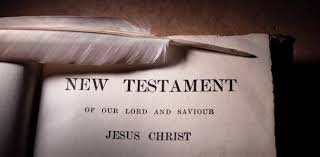
Today we no longer need the Gift of Tongues as, “a sign to the unbelievers,”. Additional signs, miracles and revelations are no more needed than, at the Second Coming of Christ, He will need to work miracles on the Earth to prove that He is the Christ. The signs, miracles and revelations recorded in Scripture are more than sufficient to convince any rational person that Jesus is the Saviour of the world, and that faith in Him plus nothing else brings salvation and eternal life (John 20:29-31; (C.S. Lewis, "Mere Christianity", 1952). Today we have more excellent gifts than that of tongues. We have faith, hope, love and a completed New Testament that we can stake our eternal lives on (I Corinthians 12:31; I Corinthians 13:1-8, 13). Modern mainstream protestant doctrine believes that the Holy Spirit will never enter a person and cause them to speak in is a way that is not understandable as it would serve no practical purpose.
Finally, modern speaking in tongues is apparently nothing more or less that an emotional outburst from a person who is psychologically experiencing spontaneous and overwhelming euphoric emotions that cannot be expressed except through non-coherent guttural utterances. Thus, these outburst are simply an emotional release valve for the self-possessed and seen by bystanders for what they are. A learned conscious act of self expression. As Shakespeare famously put it, “It is a tale, … full of sound and fury, signifying nothing” (Macbeth).

On a closing note, the two thousand year anniversary date of the assentation or Rapture of Christ into Heaven will occur on Sunday, May the 15, 2033. Sunday is the day Jesus was resurrected from the dead. The official start of the Church Age at Pentecost will occur ten days later on May the 25th, which is a Wednesday. And, Wednesday was the last day Jesus taught in the Temple. He held the Last Supper Thursday night and was crucified Friday morning. Will either of these dates be the Rapture and official end of the Church Age? Only time will tell.
If you enjoy the information provided on this site, please consider making a donation of any amount to help continue its production. Donate Now